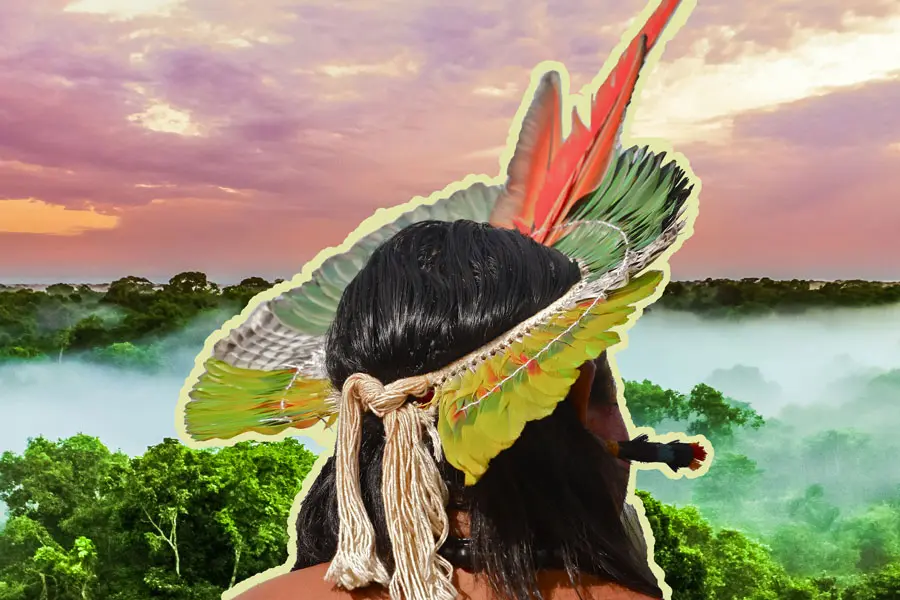The environmental risk to the Amazon is getting more dire—this time because Brazil’s Congress is about to vote on a bill that would legalize mining, hydro-dam construction, fossil fuel extraction, industrial agriculture, and ranching in the rainforest’s indigenous territories. As reported in a story entitled, “Proposed Law of Devastation,” without environmental protections in place, the new policy would allow industrial interests to utilize the Amazon’s resources—without authorization from the indigenous peoples who live there and who have no legal means of even vetoing the law. Indeed, the denial of indigenous veto power violates the United Nations Declarations on the Rights of Indigenous Peoples, which was meant to give indigenous peoples the right to veto national legislation and state management of resources.
This new law comes at a pivotal time, when more and more mining companies, encouraged by Brazilian President Jair Bolsonaro (who’s been notorious for undermining the government’s existing environmental protections), are making requests upon indigenous territories in the Amazon. Twenty-three percent of the Brazilian Amazon is under the auspices of indigenous territories—in other words, 173 indigenous tribes inhabit 359 indigenous lands spanning 444,000 square miles. At the same time, 18 percent of the Amazon has already been cleared for industrial purposes (ranching, plantations, mining, towns, and roads).
While indigenous territories have thus far been able to defend their lands against deforestation, if the “Bill of Devastation” is approved by the Brazilian Congress, these lands may soon be at risk. Almost 2,000 mining requests to the Brazilian National Mining Agency implicate 92 indigenous territories.
Twenty-three percent of the Brazilian Amazon is under the auspices of indigenous territories—in other words, 173 indigenous tribes inhabit 359 indigenous lands spanning 444,000 square miles.
While deforestation had been declining until 2018, with the election of President Bolsonaro, the risk of environmental damage has re-emerged amidst political vows to open up the Amazon to industry. To that end, Bolsonaro gutted Brazil’s federal environmental agency meant to protect indigenous regions from deforestation and rights violations. In effect, indigenous peoples themselves, along with NGOs advocating on their behalf, have been tasked with self-protection in the face of government-sanctioned social and environmental threats. In essence, with the governmental system of checks and balances curtailed in favor of industrial interests, there’s little defense for the environment or the indigenous peoples living there—and even more so if this bill passes.
As one Kayopó indigenous leader, Oro Mutura put it, “We want to tell the kubé [white men] to listen, to respect our rivers, our forests, our land for where there is mining it gets worse for us because we can get sick. The relatives who live where there is gold mining are already sick. There is a lot of mercury contamination, even fish. That’s why I don’t want to mine in my village.”

DoubleBlind is a trusted resource for news, evidence-based education, and reporting on psychedelics. We work with leading medical professionals, scientific researchers, journalists, mycologists, indigenous stewards, and cultural pioneers. Read about our editorial policy and fact-checking process here.

DoubleBlind Magazine does not encourage or condone any illegal activities, including but not limited to the use of illegal substances. We do not provide mental health, clinical, or medical services. We are not a substitute for medical, psychological, or psychiatric diagnosis, treatment, or advice. If you are in a crisis or if you or any other person may be in danger or experiencing a mental health emergency, immediately call 911 or your local emergency resources. If you are considering suicide, please call 988 to connect with the National Suicide Prevention Lifeline.



